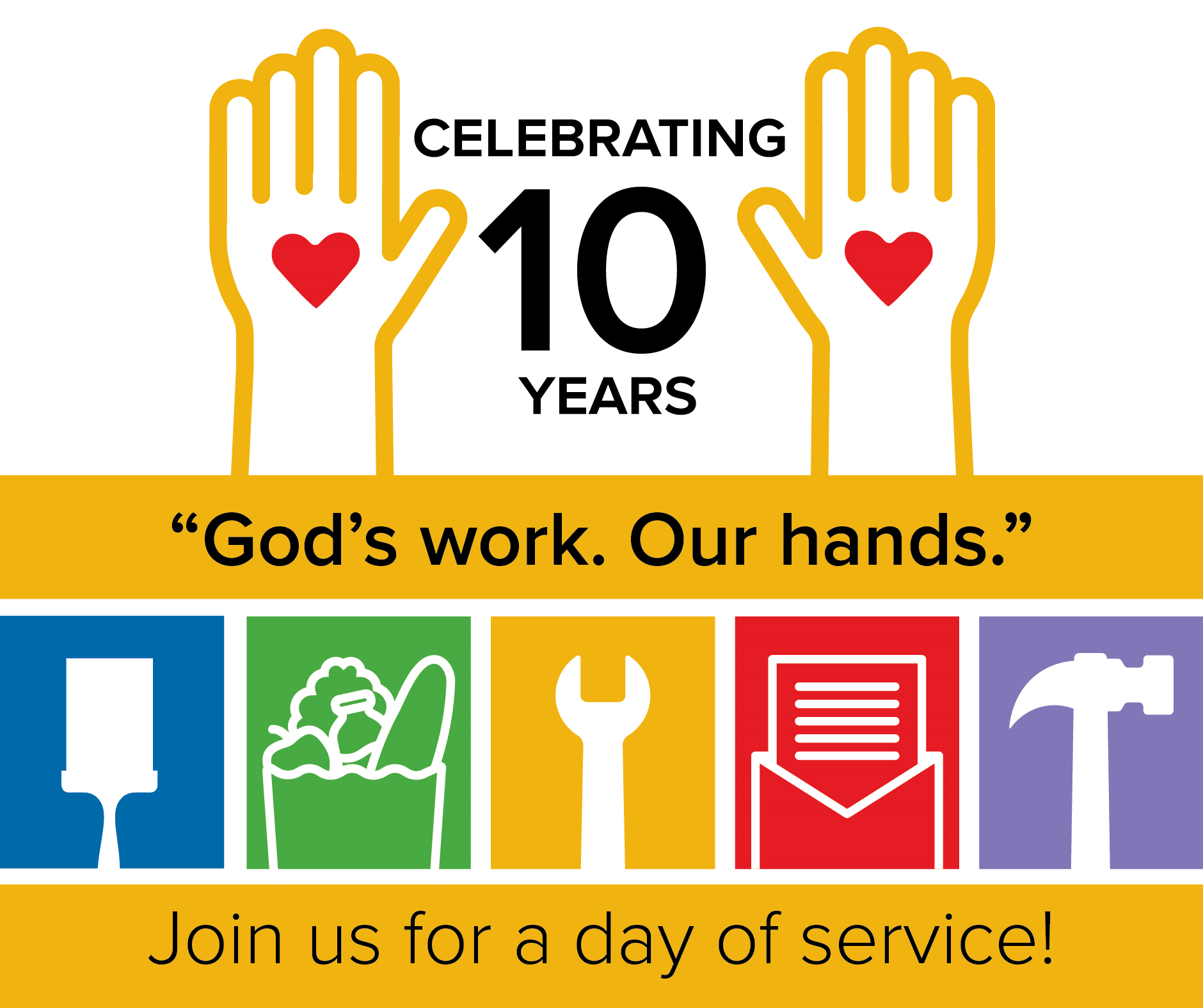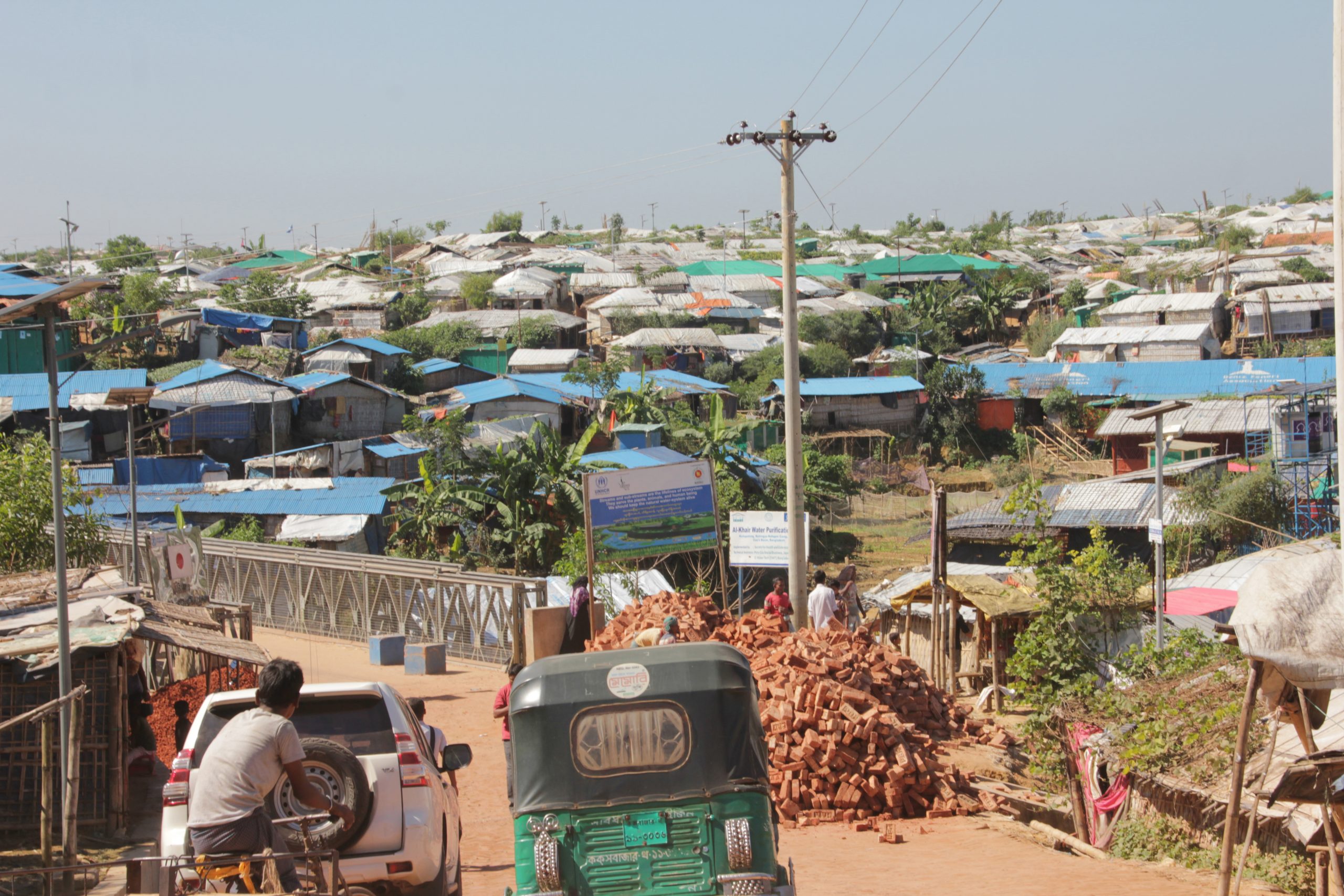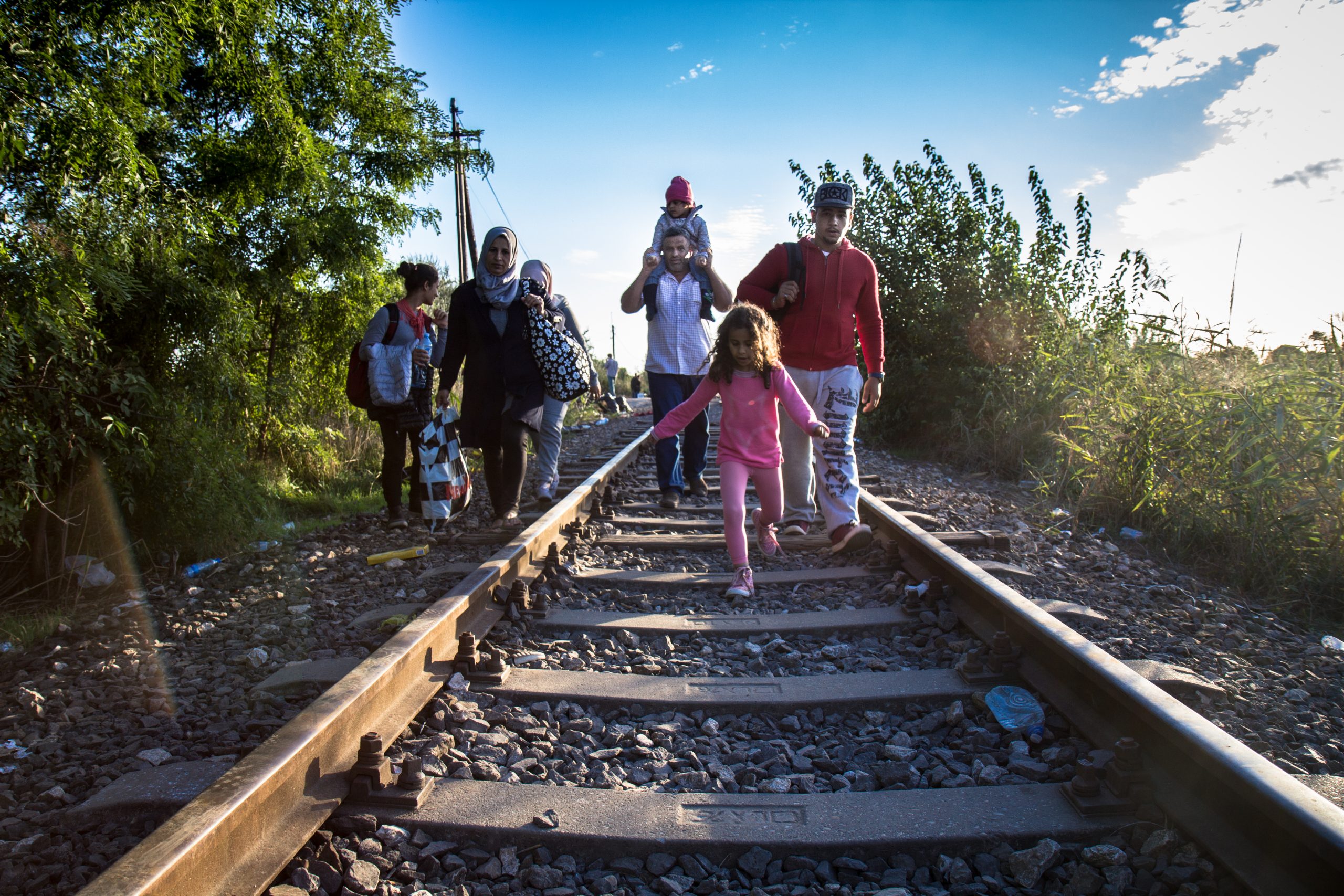“God’s Work. Our Hands.” Sunday will be here before you know it! 2023 is the tenth year of GWOH Sunday, which is a day of service dedicated to community service. This year, it falls on September 10.
GWOH Sunday is a great opportunity to participate in disaster response and preparedness work with your congregation. Here are just a few ideas for activities:
- Assemble preparedness kits. Some things you may want to include are:
- Small flashlight
- First aid materials, like bandages
- Whistle
- Snacks
- Water bottles
- Hand sanitizer
More ideas for kits can be found at Ready.gov.
You might need other things for different kinds of weather. For example, in a winter weather preparedness kit, include items like gloves, socks and hand warmers. Distribute the kits locally – in your congregation, community, local shelters, etc.
- Identify disasters that could impact your community. Flooding? Hurricanes? Wildfires? Figure out the biggest threats in your area and come up with a plan for both your congregations and for families that can be shared in your community. Look at what resources you can offer during and after a disaster.
- Volunteer (locally). If there has been a disaster of any kind in your community, find a local organization that is doing response work and actively seeking volunteers.
- Advocate. Ask your congregation to reach out to your local representatives and voice your support for these policies. ELCA Advocacy has two calls for action posted online:
- Simplify and Improve Disaster Response Policies – The Disaster Survivors Fairness Act of 2023 would make several major improvements to our public policies aimed at addressing natural disasters, including creating a simplified “universal application” for federal disaster assistance and enabling federal agencies to better coordinate with each other and authorizing FEMA to reimburse state-level disaster solutions, and require FEMA to report to Congress new post-disaster solutions for renters.
- Support Policy that Improves Disaster Relief and Prevention – The Reforming Disaster Recovery Act, would, among many changes, increase federal response transparency with community partners, raise commitments to long-term resiliency after reconstruction, and authorize the Community Development Block Grant (CDBG) disaster relief program into formal law.
- Form partnerships. Many of these activities can be done in collaboration with other local organizations or emergency management. It’s essential to form these relationships before a disaster, so your congregation is prepared to mobilize if a disaster does strike.
- Give. As you do disaster response/preparedness activities, collect a special offering for Lutheran Disaster Response. Gifts to Lutheran Disaster Response help us respond to disasters quickly and efficiently.
If you do any of these activities, or others related to disaster response, resilience or preparedness, let us know! Send your stories and photos to Disaster@ELCA.org.


